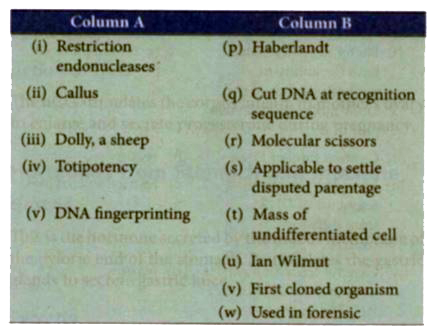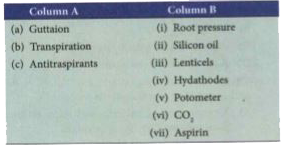The quivalnet conductance of any electrolyte MA at infinite dilution ∧∘.(MA) is equal ( more than one correct answer)
∧∘.(MA)=∧c−.(MCl)+∧∘.(NaA)+∧∘.(NaCl)
∧∘.(MA)=∧c−.(MCl)+∧∘.(NaA)−∧∘.(NaCl)
∧∘.(MA)=λ∘.(M⊕)+λ∘.(Ac−)
∧∘.(MA)=∧c−.(MCl)+∧∘.(NaA)−∧∘.(NaCl)
The correct Answer is:B,C
Factual statement
Topper's Solved these Questions
- BOOK - CENGAGE CHEMISTRYCHAPTER - ELECTROCHEMISTRYEXERCISE - Exercise(Linked Comprehension )30videos
ELECTROCHEMISTRY
- BOOK - CENGAGE CHEMISTRYCHAPTER - ELECTROCHEMISTRYEXERCISE - Exercisemultiple Correct Ansers53videos
ELECTROCHEMISTRY
- BOOK - CENGAGE CHEMISTRYCHAPTER - ELECTROCHEMISTRYEXERCISE - Ex 3.2 (Objective)26videos
ELECTROCHEMISTRY
- BOOK - CENGAGE CHEMISTRYCHAPTER - D AND F BLOCK ELEMENTSEXERCISE - Archives Subjective29videos
D AND F BLOCK ELEMENTS
- BOOK - CENGAGE CHEMISTRYCHAPTER - GENERAL PRINCIPLES AND PROCESS OF ISOLATION OF ELEMENTSEXERCISE - Archives (Subjective)14videos
GENERAL PRINCIPLES AND PROCESS OF ISOLATION OF ELEMENTS
Similar Questions
Knowledge Check
- Question 1 - Select One
In a Ni−Cd battery ( more than one correct )
AAll the reactants and products in the overall reaction are in the solid state.BThe voltage of the cell changes rapidly.CThe elctrolyte used is an alkali solution.DAll of the above are true. - Question 2 - Select One
Assertion : The molar conductance of weak electrolytes at infinite dilution is equal to sum of the molar conductances of cation and anion.
Reason : Kohlrausch's law is applicable to both strong and weak electrolytes.AIf both assertion and reason are correct and reason is correct explanation for assertion.BIf both assertion and reason are correct but reason is not correct explanation for assertion.CIf assertion is correct but reason is incorrect.DIf assertion and reason both are incorrect. - Question 3 - Select One
The equivalent conductances of two strong electrolytes at infinite dilution in H2O (where ions move freely through a solution) at 25∘Care given below:
∧CH3COONa∘=91.0Scm2/equiv , ∧HCl∘=426.25cm2/≡
What additional information/quantity one needs to calculate o∧ of an aqueous solution of acetic acid?Ao∧ of NaC1B3o∧ of CH3COOKCThe limitation equivalent conductance of H+(∧∘H+)Do∧ of chlorocetic acid (C1CH2COOH)
Match the following with more than one correct answer.
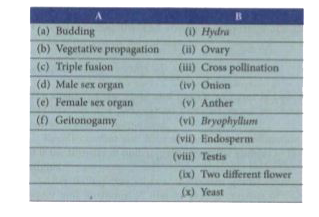 View Solution
View SolutionMatch the following with one or more than one correct answer.
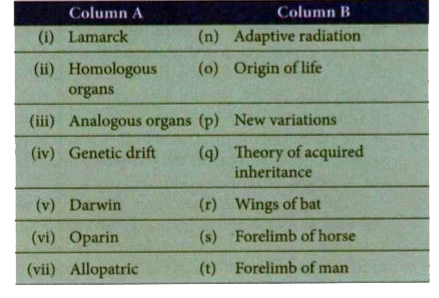
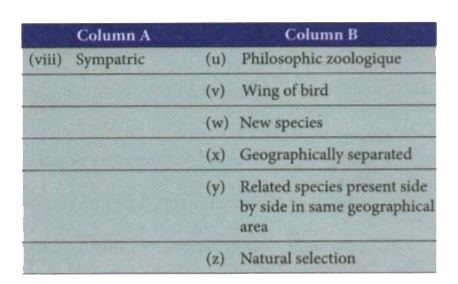 View Solution
View SolutionThe specific conductance of a0.5 N solution of an electrolyte at 25∘C is 0.00045 Scm−1 . The equivalent conductance of this electrolyte at infinite dilution is 300 S cm2eq−1 . The degree of dissociation of the electrolyte is
View Solution(A) According to Kohlrausch's law, the molar conductance of a strong electrolyte at infinite dilution is sum of molar conductivities of its ions.
(R) The current carried by cation and anion is always equal.View SolutionSTATEMENT 1 The motar conductance of weak electrolyte at infinite dilutin is equal to sum of molar conductanced of cation and anion and
STATEMENT 2 Kohlraushc 's law is applicable for both strong and weak electrolytesView Solution


